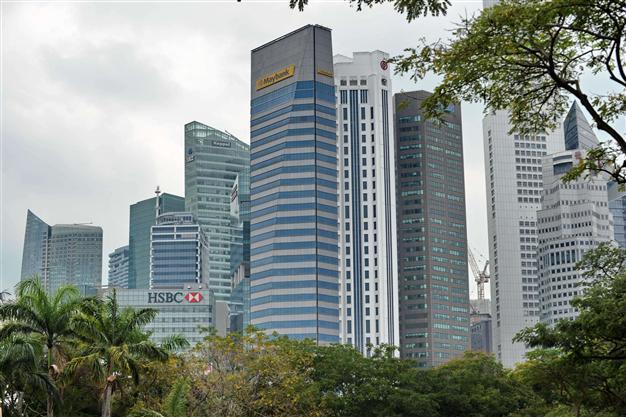Singapore world's costliest city: survey
SINGAPORE - Agence France-Presse

A view of the financial district in Singapore on March 4, 2014. AFP Photo
The soaring cost of cars and utilities as well as a strong currency have made Singapore the world's most expensive city, toppling Tokyo from the top spot, according to a survey Tuesday.
Tokyo's weakening yen saw it slide to sixth place, the position previously occupied by Singapore, in the 2014 Worldwide Cost of Living survey by the Economist Intelligence Unit (EIU).
"Singapore's rising price prominence has been steady rather than spectacular," said a report accompanying the survey by the research firm.
It said a 40 percent rise in the Singapore dollar along with "solid price inflation" pushed the country to the top of the twice-yearly survey from 18th a decade ago.
The survey, which examines prices across 160 products and services in 140 cities, is aimed at helping companies calculate allowances for executives being sent overseas.
The report said Singapore's curbs on car ownership, which include a quota system and high taxes, made it "significantly more expensive than any other location when it comes to running a car".
A new Toyota Corolla Altis costs $110,000 in Singapore compared to around $35,000 in neighbouring Malaysia.
Overall transport costs in Singapore are almost three times higher than those in New York, it said.
"In addition, as a city-state with very few natural resources to speak of, Singapore is reliant on other countries for energy and water supplies, making it the third most expensive destination for utility costs," the report said.
It also noted that Singapore is the priciest place in the world to buy clothes, as malls and boutiques in its popular Orchard Road retail hub import luxury European brands to "satisfy a wealthy and fashion-conscious consumer base".
Singapore has one of the world's highest concentrations of millionaires relative to its 5.4 million population. Its per capita income of more than $51,000 in 2012 masks a widening income gap between the richest and poorest.
In Europe, Paris rose six places to become the world's second most expensive city, a trend the EIU said was indicative of recovering European prices and currencies.
"Improving sentiment in structurally expensive European cities combined with the continued rise of Asian hubs means that these two regions continue to supply most of the world's most expensive cities," Jon Copestake, the editor of the report, said in a statement.
The report said European cities were among the priciest in the recreation and entertainment categories, reflecting "a greater premium on discretionary income".
New York, which serves as the base city for the survey, was ranked 26th, while Sydney and Melbourne came in at fifth and sixth respectively owing to a strong Australian dollar.
Caracas was tied at sixth with Melbourne, Geneva and Tokyo, but the EIU said the Venezuelan capital's position was largely due to the imposition of an artificially high official exchange rate.
"If alternative black market rates were applied Caracas would comfortably become the world's cheapest city in which to live," it said.
India's financial centre Mumbai was ranked the world's least expensive city, joining other South Asian cities including Karachi, New Delhi and Kathmandu in the bottom of the pile.
The five most expensive cities were judged to be Singapore, Paris, Oslo, Zurich and Sydney in descending order. Caracas, Geneva, Melbourne and Tokyo were tied at sixth place while Copenhagen was tenth.
